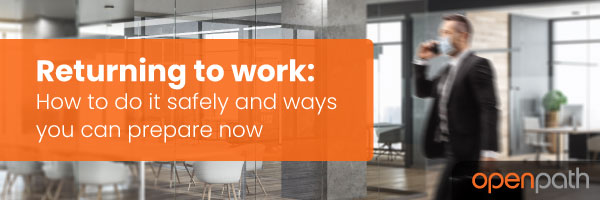The Daily Ten – Elon Musk wants to build a tunnel in Las Vegas, Adam Neumann is back, New Yorkers flock to Greenwich, Zoom launchers 3rd party apps…

The Daily Ten
1. Elon Musk’s Boring Co. has officially applied to create a system of underground tunnels connecting the entire Las Vegas strip | Business Insider
With its first Las Vegas project nearing completion, Elon Musk’s Boring Company has set its sights on connecting the city’s entire Strip, as well as the airport and stadium, with a network of underground tunnels.
The Tesla CEO’s tunneling company has submitted a special use permit application to Clark County officials, the Las Vegas Convention and Visitors Authority said Tuesday, and plans to file a design review shortly. The documents, including a map, provide the first detailed look at Musk’s previously stated vision for a network of underground tunnels helping gridlocked traffic avoid noisy sun-soaked streets in favor of subterranean arteries.
The proposed network would overlap the company’s existing project, connecting two sides of Las Vegas’ newly expanded convention center and eventually extending to a yet-to-be-built Resorts World casino nearby. That first tunnel is scheduled to open in January.
In this week’s proposal, a main artery under Las Vegas Boulevard would extend as far north as the Circa casino. Going south, the tunnels would eventually reach the airport and Allegiant Stadium, with possible turnaround points at a handful of points along the strip.
2. Greenwich Home Purchases Soar to a Decade High on NYC Exodus | Bloomberg
Greenwich home sales had the strongest quarter in more than a decade as New Yorkers piled in, searching for extra space in the pandemic era.
Purchases of single-family houses jumped 70% in the third quarter from a year earlier to 311, the most for a three-month period in records dating back to early 2010, according to a report by appraiser Miller Samuel Inc. and brokerage Douglas Elliman Real Estate. The median price of those deals surged 18% to $2.13 million.
The Connecticut suburb, popular with Wall Street executives, has seen its fortunes reverse after a long stretch of slowing sales and stagnant pricing. Estates on large lots that had fallen out of vogue following the financial crisis are now in demand as buyers place premiums on having extra rooms, swimming pools and enough land for socially distant gatherings.
“With bigger homes, you’ve got the opportunity to have extended family with you, but also more amenities on-site,” said David Haffenreffer, manager of brokerage Houlihan Lawrence’s Greenwich office. “You can spread out and live that quarantine life in a more-liberated way.”
3. Abandoned City Offices Are Still a Safer Property Bet | WSJ
For clues about how remote working may hit demand for offices, investors can look at the uneven impact of e-commerce on retail landlords
As long as worries about catching Covid-19 keep commuters off buses and trains, city skyscrapers will remain empty. If remote working really takes hold, though, the owners of out-of-town offices may have more to worry about.
The number of people using public transport in London and New York is still down 47% and 40% respectively compared with pre-pandemic norms, Google mobility data shows. Offices in built-up areas that are less accessible by car are in hibernation mode. British Land, which owns a portfolio of central London…
4. Covid Recession Spawning Entrepreneurs in U.S. Amid Joblessness | Bloomberg
Americans continue to create new businesses in surprising numbers, a potential tailwind for an economy that this spring saw its highest jobless rate since the Great Depression.
The number of Employer Identification Number applications, which new businesses file with the IRS, fell sharply in March as the Covid-19 pandemic forced business shutdowns in many states. However, applications began rebounding by early summer especially in the South, which initially had a milder outbreak, and by now the growth has spread nationwide.
New business formations of any size hit 1.5 million in the third quarter, up 77% from the previous three months and 82% from a year earlier, according to the U.S. Census Bureau, which collects and publishes the IRS data. One caveat is that people often wait several months after filing for an EIN before actually starting their businesses, creating a lag in job creation.
John Halitwanger, a University of Maryland economics professor who closely follows the EIN filings, hailed the new numbers as “the highest on record” in a Twitter post.
5. China’s Households Are Shouldering the Burden of Its Recovery | WSJ
The scale of household borrowing marks a major difference between China and the West this year
China’s recovery from the pandemic will make it one of the few economies to grow in 2020, according to the International Monetary Fund. That’s down in no small part to the still-burgeoning debt of Chinese households.
This year, Chinese consumption has been far weaker than other varieties of economic activity, with year-over-year retail sales of consumer goods still negative. But that doesn’t mean Chinese families are sitting on the sidelines: the scale of household borrowing marks a major difference between China and the…
6. Zoom launches Zapps to bring third-party apps into video calls | Venture Beat
Zoom has become an indispensable tool for businesses, schools, and even health care providers during the pandemic. Now the company is extending its utility with the launch of new app integrations it calls Zapps.
Zapps are third-party applications that integrate into Zoom’s existing workflow so users can more easily access information and collaborate while on video calls. Simultaneously, Zoom is also launching OnZoom, an integrated online events platform.
While Zoom’s existing app marketplace allows developers to bring its functionality into their own apps, the new Zapps marketplace brings third-party app functionality into Zoom. The company plans to launch with some 35 Zapps partners later this year, including Atlassian, Dropbox, HubSpot, Salesforce, and Slack. Zoom also expects education partners like Coursera and Kahoot to enhance virtual learning, which could be particularly timely as lockdowns stretch on indefinitely.
7. Real estate technology SPAC PropTech Investment II files for a $175 million IPO | Nasdaq
PropTech Investment II, the second blank check company led by partners at Hennessy Capital targeting a real estate technology business, filed on Wednesday with the SEC to raise up to $175 million in an initial public offering.
The Wilson, NY-based company plans to raise $175 million by offering 17.5 million units at a price of $10. Each unit consists of one share of common stock and one-third of a warrant, exercisable at $11.50. At the proposed deal size, PropTech Investment II would command a market value of $219 million.
The company is led by Co-CEO and Chairman Thomas Hennessy and Co-CEO, CFO, and Director Joseph Beck, who are currently Managing Partners of Real Estate Strategies at Hennessy Capital and previously served as Portfolio Managers at ADIA. The Co-CEOs’ first property technology SPAC, PropTech Acquisition (PTAC; +5% from $10 offer price), is currently pending a combination with home services software provider Porch.com.
Hennessy Capital founder and CEO Daniel Hennessy will serve as a Senior Advisor, a role he also held for PropTech Acquisition. Daniel Hennessy has led several other SPACs, the most recent being February 2019 IPO Hennessy Capital Acquisition IV (HCAC; +5%), which is currently pending a combination with EV startup Canoo.
8. Adam Neumann returns with $30M investment in residential startup | The Real Deal
WeWork’s former CEO and co-founder previously supported a similar initiative, WeLive
Adam Neumann is back.
In his first venture since leaving WeWork last year, Neumann is investing $30 million in Alfred Club, Inc., a startup that provides services — such as dog-walking, maintenance requests and rent-processing — in apartment buildings, Bloomberg News reported.
Neumann’s family investment office, through an LLC, led the most recent $42 million funding round. Alfred has now garnered nearly $100 million in investments and operates in more than 100,000 apartment units.
The startup has previously received investments from Greystar, one of the largest apartment owners in the country, which was sued in May for compiling dossiers on prospective tenants. Spark Capital and New Enterprise Associates have also provided capital.
9. Portland rents falling at faster rate than most major cities: report | Fox Business
Rent prices in Portland, Ore., are falling at a faster rate than many other major cities after years of increases, according to a report.
The declines in several rental markets are largely attributable to the coronavirus pandemic, according to the Oregonian, but Portland’s is steeper than all but 9 other cities with populations of 250,000 or more — likely due to years of rent hikes, a report from Apartment List said.
The outlet said the downtown area has been particularly challenged by months of racial injustice protests that have frequently turned destructive and homeless camps that have overwhelmed certain areas – although there’s no data to show if downtown rents are decreasing faster than the rest of the city.
While rents in Portland have fallen by 5.7%, nationwide rents are down by just 1.4%, according to Apartment List’s October 2020 Portland Rent Report.
10. State starts mailing out $500 cards for unemployed workers to spend at eateries | Hawaii News Now
HONOLULU, Hawaii (HawaiiNewsNow) – A new program that will give tens of thousands of unemployed workers in Hawaii a $500 card to spend at Hawaii eateries is set to launch Friday.
The Hawaii Restaurant Card program is funded with $75 million in federal CARES Act funds.
Cards are being mailed out to 116,000 workers in the islands who were unemployed in September.
The state also plans to send cards to an additional 30,000 unemployed workers who applied for Pandemic Unemployment Assistance as independent contractors.
Funds must be spent by Dec. 15.
Gov. David Ige said the program is an innovative win-win for the economy and Hawaii families.
“It will immediately drive business to the struggling restaurant industry,” Ige said, adding that the card doesn’t impact food stamp or Medicaid eligibility.


